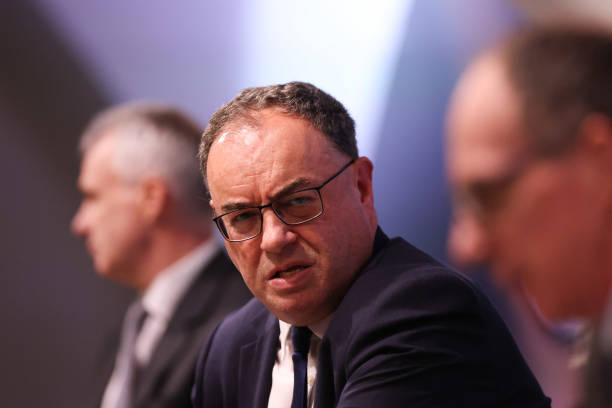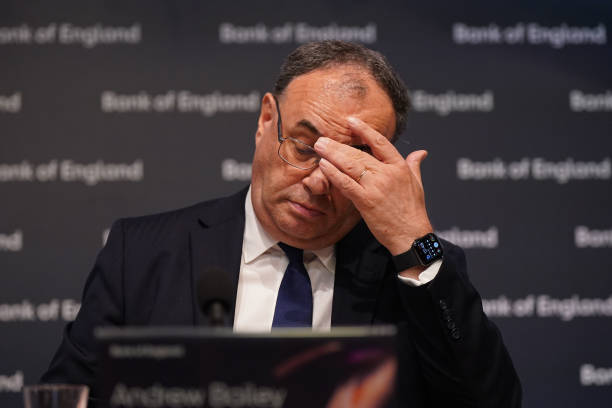“Bank of England’s Secret Strategy Revealed: What It Means for You!”
Title: Understanding the Bank of England’s Monetary Policy
The Bank of England (BoE) is in the spotlight, with analysts keeping a close eye on its upcoming decisions regarding interest rates and inflation. Here’s a breakdown of what’s happening and what it means for you.
 First off, the BoE is likely to keep its interest rates unchanged at 5.25%. This decision comes after several months of holding rates steady following a series of 14 rate hikes aimed at tackling inflation. While inflation has been coming down faster than expected, the BoE isn’t quite ready to start cutting interest rates just yet.
First off, the BoE is likely to keep its interest rates unchanged at 5.25%. This decision comes after several months of holding rates steady following a series of 14 rate hikes aimed at tackling inflation. While inflation has been coming down faster than expected, the BoE isn’t quite ready to start cutting interest rates just yet.
Inflation, which is the rate at which prices for goods and services rise, has been a concern. In the UK, it went up to 4% in December, but that’s lower than the double-digit levels we saw a year ago. It’s also lower than in some other countries like France but higher than in the US and Germany.
Globally, central banks, including the Federal Reserve and the European Central Bank, are considering lowering interest rates as inflation eases in many places. However, the BoE is taking a cautious approach. It’s acknowledging progress in reducing inflation but wants to see more before making any big moves.
The UK economy has been experiencing some challenges too. Economic growth has slowed down since the summer, with GDP falling in November. Despite this, unemployment remains low, but businesses aren’t hiring as much as before.
Looking ahead, experts predict that inflation in the UK will likely drop to around 2% by the second quarter of the year. This is lower than what was previously expected, which is good news for consumers because it means prices are rising at a slower pace.

BoE Governor Andrew Bailey has warned that it might take until 2025 for inflation to return to the target of 2%. That’s a while away, so the BoE isn’t rushing into any decisions. It’s also keeping an eye on wage growth and the prices of services, which are still relatively high despite some decreases.
Analysts suggest that the BoE might change its tune later in the year. They think there’s a chance it could start considering cutting interest rates, possibly around June. This would be a shift from its previous stance of possibly raising rates further.
One thing the BoE will be looking at is the supply side of the economy. This means they’ll be assessing how much the economy can grow without causing prices to rise too quickly. It’s an important factor in deciding what to do about interest rates.
But it’s not an easy decision for BoE Governor Bailey and his team. On one hand, they want to keep inflation in check, but on the other hand, they don’t want to harm the economy by making borrowing too expensive.
So, what does all this mean for you? Well, it could affect things like mortgage rates, savings account interest rates, and even the prices you pay for goods and services. If interest rates go down, borrowing money might become cheaper, which could be good news if you’re thinking about getting a loan or a mortgage. However, it might also mean that the interest you earn on your savings could go down too.
In conclusion, the Bank of England is facing some tough decisions regarding interest rates and inflation. While there are signs of progress in bringing inflation down, the BoE is being cautious and wants to see more before making any big changes. Keep an eye on the news to see how things unfold and how it might impact you and your finances.





1 COMMENTS